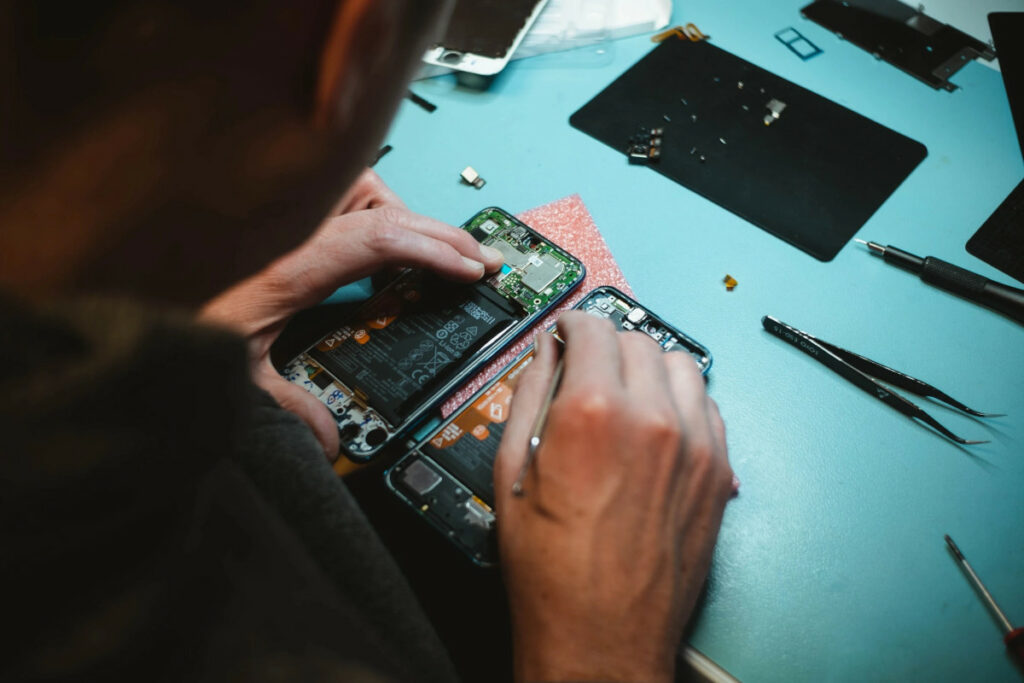
Following our post yesterday, it’s important to remember that there is hope regarding the concerning issue of e-waste.
Movements such as ‘Right to Repair’ advocate for consumers to push for progressive change around this topic. Founded in 2019, Right to Repair are affiliated with over 40 organisations such as ECOS and the EEB and have links to over 16 countries within the EU. Their goal is simple: To give consumers the right to repair their products without the barriers imposed by manufacturers, so that they can last longer and ultimately produce less electronic waste. They are campaigning for the ‘10 Year Smartphone’ and are committed to pushing policy makers for:
- Good design: EU legislation should impose minimum design requirements which ensure easy disassembly of the device to easily replace key components. They should be designed not only to perform effectively, but also to last.
- Fair access: It should be easily accessible for consumers to repair a product, and it should be affordable. Repairing a product should therefore not cost more than buying a new one and this should be independent from manufacturers.
- Informed consumers: We should have the right to know whether our device is built to be repaired, or whether it is planned for obsolescence. Right to Repair want to introduce a scoring system as part of the existing energy label that will allow for consumers to have an idea of the repairability of their device.
It is with movements such as this that we can begin to see change, but the real change has to come from policy makers themselves, as well as manufacturers and ourselves. Over 210 million smartphones are sold every year in the EU and it is estimated that with every phone that is made, between 40 and 80kgs of CO2 is generated—which is the equivalent to driving a car for three hours. While the introduction of a universal phone charger in the EU is a step in the right direction, we still have a long way to go in terms of our electronic waste practices. It is up to us to voice the need for a right to repair our products, which will ultimately reduce our electronic waste levels which are currently much higher than they should be.
Check out Right to Repair’s website for more information on how to do this.
Want to go a step further? Accenture have partnered with changex and currently have funding available for anyone looking to start a repair café in their community. This is a great initiative and will encourage more people to learn how to repair their products and devices in a community-based learning environment. To find out how to get started with this great opportunity, check out their webpage.
